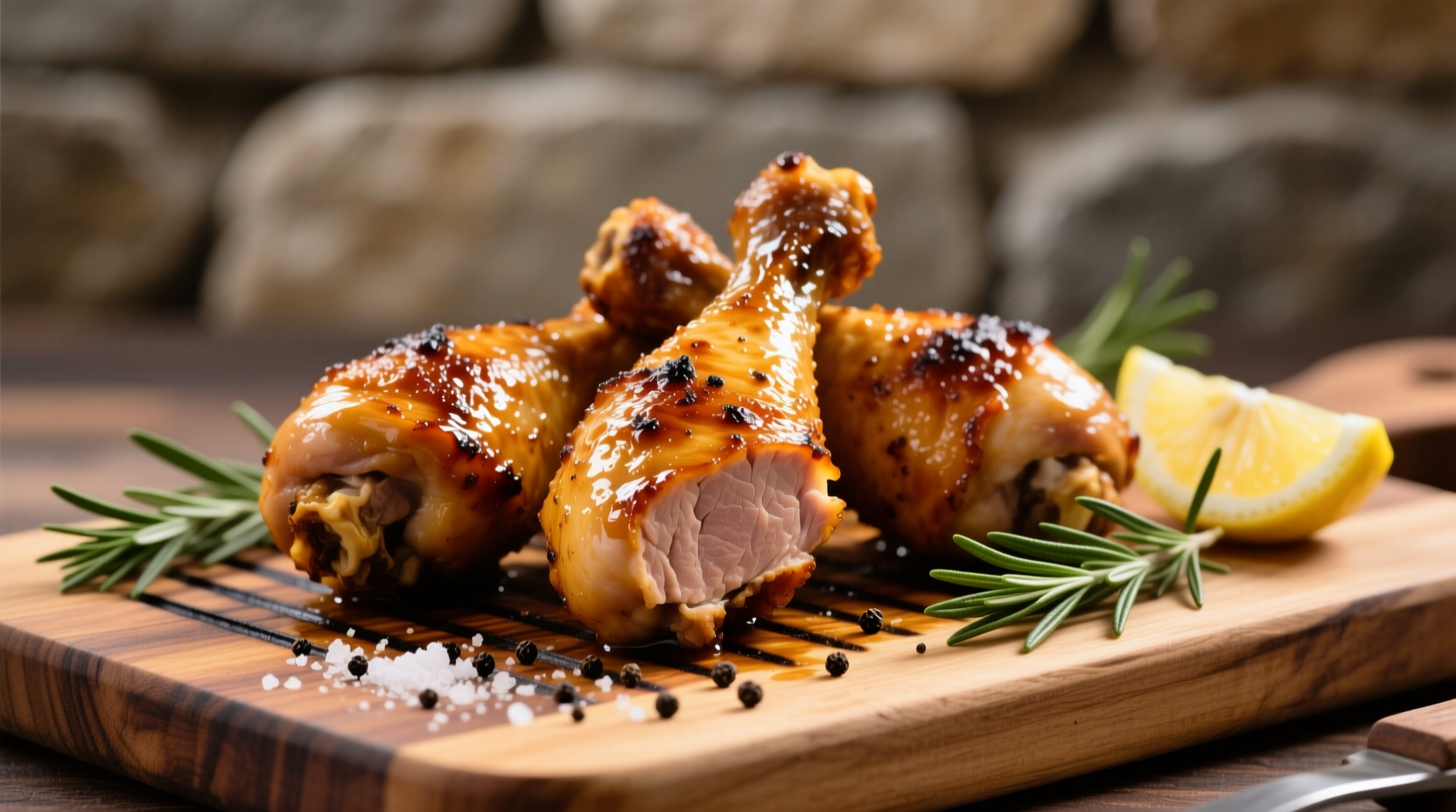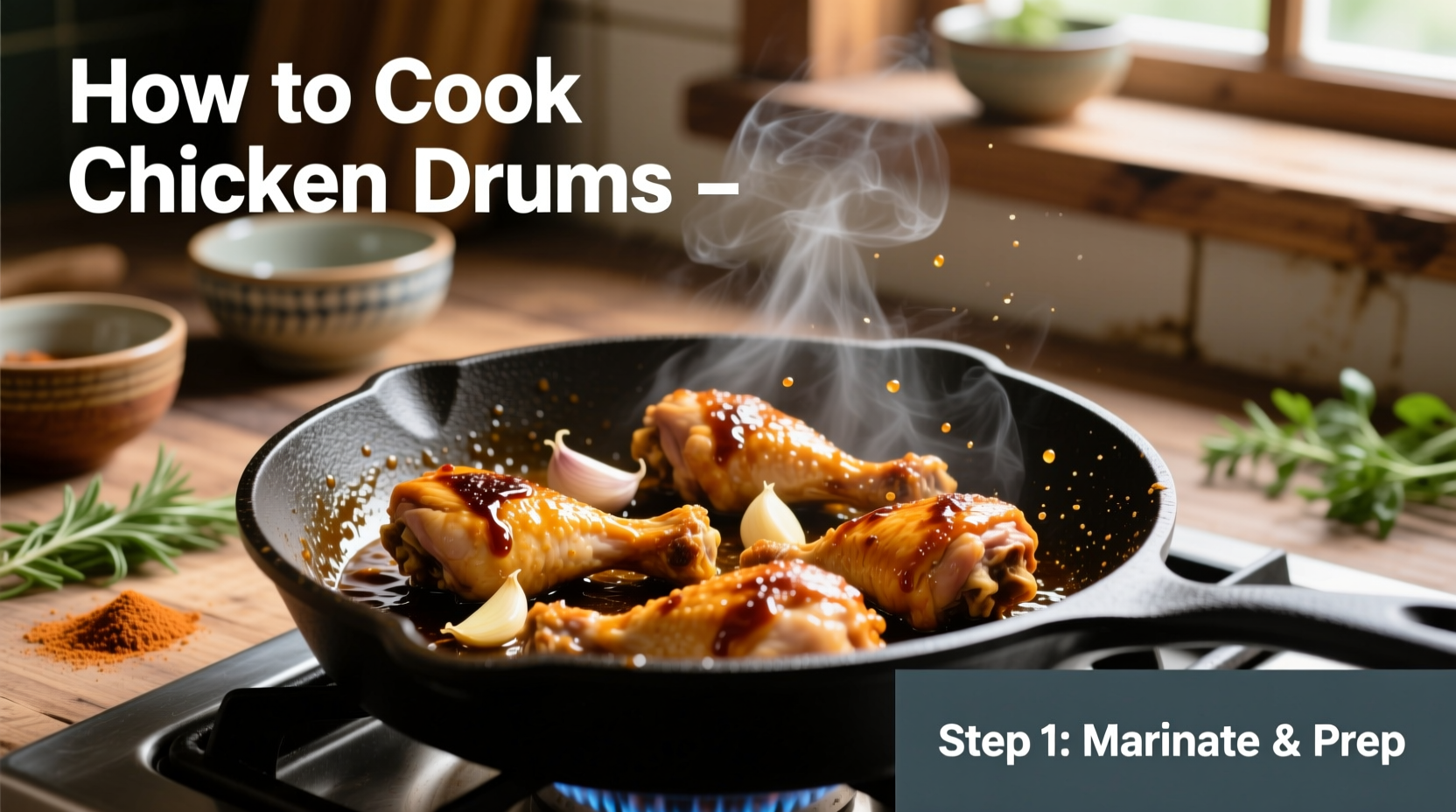Mastering Chicken Drumsticks: Your Complete Cooking Guide
Chicken drumsticks represent one of the most affordable and flavorful cuts available, yet many home cooks struggle with achieving consistent results. As a culinary professional with extensive experience teaching cooking techniques, I've refined a reliable method that guarantees juicy meat and crispy skin without special equipment. This guide walks you through each critical step, addressing common pitfalls that lead to dry, rubbery, or undercooked results.

Your Essential Preparation Checklist
Before you begin cooking, proper preparation makes all the difference in your final results. Start by selecting drumsticks with uniform size for even cooking. Pat them thoroughly dry with paper towels - this crucial step often gets overlooked but directly impacts your ability to achieve crispy skin. According to USDA Food Safety and Inspection Service guidelines, proper handling of raw poultry prevents cross-contamination. Always wash hands after handling raw chicken and use separate cutting boards for meat and produce.
For optimal flavor development, season your drumsticks at least 30 minutes before cooking, though overnight marinating yields even better results. A simple dry rub of salt, pepper, garlic powder, and paprika creates excellent flavor foundation. Remember that salt not only enhances taste but helps draw moisture to the surface, promoting browning.
| Prep Step | Time Required | Critical Purpose |
|---|---|---|
| Drying surface | 5 minutes | Enables proper browning and crispy skin |
| Seasoning application | 2 minutes | Flavor penetration and surface enhancement |
| Resting after seasoning | 30+ minutes | Allows salt to penetrate and moisture redistribution |
Choosing Your Cooking Method
While multiple cooking methods exist for chicken drumsticks, baking delivers the most consistent results for home cooks. Unlike grilling which requires constant attention or frying which creates excess oil, oven baking provides hands-off cooking with excellent results. Set your oven to 400°F (204°C) and position the rack in the middle for even heat distribution.
Place drumsticks on a wire rack set over a baking sheet - this elevates them for air circulation, ensuring all sides crisp evenly. If you don't have a wire rack, arrange them directly on parchment paper with space between each piece. The key is avoiding overcrowding, which creates steam and prevents proper browning.
Perfect Cooking Process
After 20 minutes of baking, carefully flip each drumstick using tongs. This critical step ensures even cooking and browning on all sides. Continue baking for another 15-25 minutes, watching closely during the final 10 minutes. The skin should turn deep golden brown with crispy edges, and the meat should feel firm but not hard when pressed.
Never rely solely on appearance or timing - always verify doneness with an instant-read thermometer. Insert it into the thickest part of the meat, avoiding bone contact. The USDA requires poultry to reach 165°F (74°C) for safe consumption. This temperature kills harmful bacteria while preserving moisture. Remove drumsticks from the oven when they reach 160°F (71°C), as carryover cooking will bring them to the safe temperature during resting.
Flavor Enhancement Techniques
Elevate your basic preparation with professional flavor techniques. During the last 10 minutes of cooking, brush drumsticks with your favorite glaze - honey mustard, barbecue sauce, or a simple mixture of melted butter and herbs. The high heat caramelizes the sugars, creating a beautiful finish without burning.
For maximum flavor impact, add fresh herbs like rosemary or thyme to the baking sheet. Their aromatic oils release during cooking, infusing the chicken with subtle complexity. Sliced lemon or onion underneath the drumsticks creates a natural steam barrier while adding complementary flavors.
Troubleshooting Common Issues
Even experienced cooks encounter problems with chicken drumsticks. If your skin isn't crisping, increase oven temperature to 425°F (218°C) for the final 10 minutes. For dry meat, try brining drumsticks in a 4% salt solution for 1-4 hours before cooking - this simple technique dramatically improves moisture retention.
If you notice uneven cooking, rotate the baking sheet halfway through cooking. Drumsticks closer to oven heating elements cook faster, so rearranging ensures consistent results. For extra-crispy skin, finish under the broiler for 1-2 minutes, watching carefully to prevent burning.
Serving and Storage Recommendations
Always let drumsticks rest for 5-10 minutes after cooking. This allows juices to redistribute throughout the meat, resulting in noticeably juicier chicken. Serve with complementary sides like roasted vegetables, rice pilaf, or a fresh green salad.
Store leftovers in an airtight container in the refrigerator for up to 3-4 days. When reheating, avoid the microwave which creates rubbery texture. Instead, warm in a 350°F (177°C) oven for 10-15 minutes or use an air fryer at 320°F (160°C) for 5-7 minutes for revived crispiness.











 浙公网安备
33010002000092号
浙公网安备
33010002000092号 浙B2-20120091-4
浙B2-20120091-4